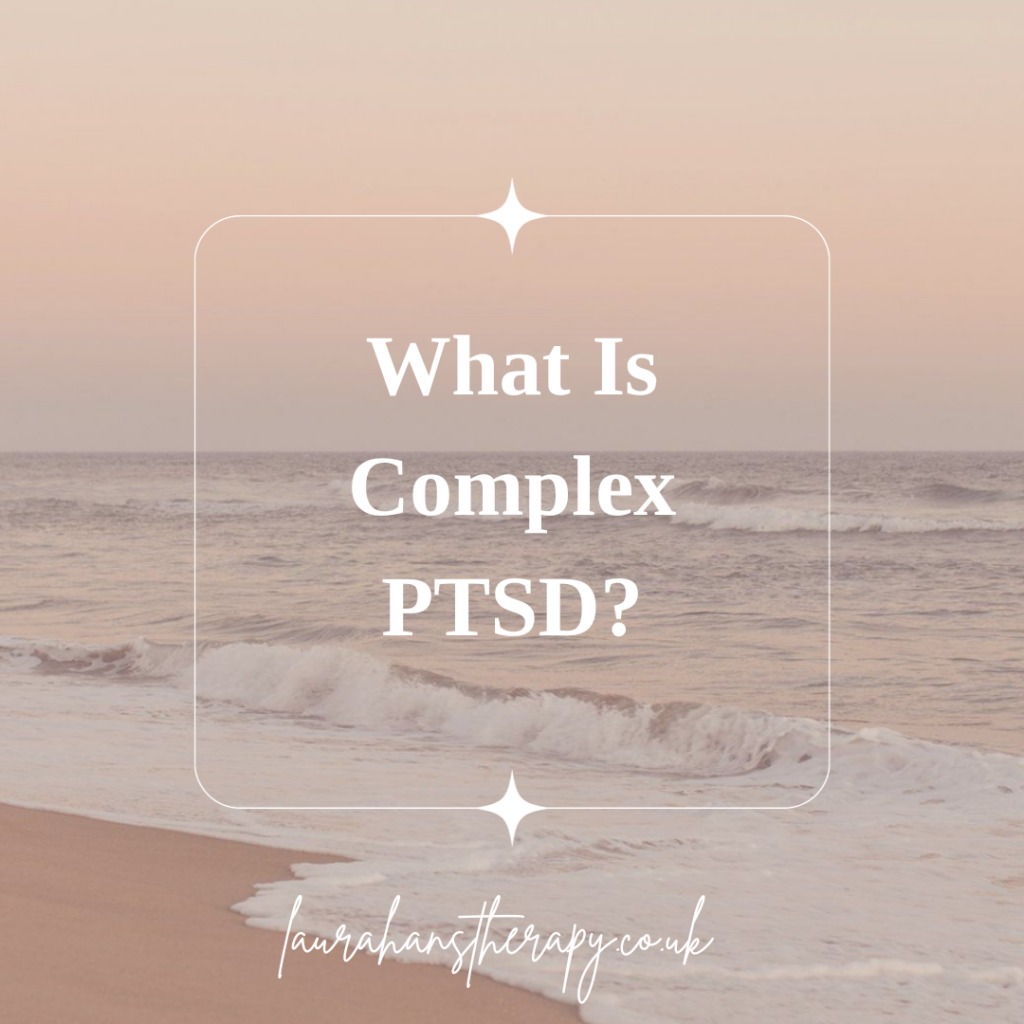What is Complex PTSD?
The term Complex Post Traumatic Stress Disorder (or CPTSD) describes a set of symptoms seen in many clients with a background of extensive abuse and neglect. The condition has also been called ‘a disorder of extreme stress’. According to research, the condition is often characterised by significant attachment disorder, dissociative personality, structure, and rigid psychological defences.
What are the Signs & Symptoms to Look Out For?
This is by no means an exhaustive list, but here are some signs you may be suffering from Complex PTSD:
- Difficulty regulating emotions.
- Experiencing anger, rage, and vulnerability and lacking the tools to manage them.
- Feelings of worthlessness, emptiness and hopelessness.
- Marked difficulty in maintaining healthy relationships.
- Excessive physical symptoms associated with anxiety.
What Causes Complex PTSD?
Complex PTSD may be caused by experiencing recurring or long-term traumatic events, for example childhood abuse or neglect, domestic violence or sexual abuse. Regardless of the specific circumstances, people with Complex PTSD tend to have had difficult early life experiences. They are likely to have a history of significant unmet needs as a child and disrupted attachments to their caregivers as a result. These things may also have caused disorganised attachments within relationships in their adult life.
What Can I Do?
-
Get Yourself to Therapy
Unfortunately, the NHS provision for Complex PTSD and other chronic, long-standing mental health difficulties is very poor. I am currently funding my own treatment for Complex PTSD for this very reason. The good news is there are lots of psychologists and therapists who are extensively trained in working with complex trauma, myself being one of them. Therapies such as Attachment-Focused EMDR Therapy and Schema Therapy are both fantastic treatments for Complex PTSD.
These are treatments I’m not only trained in but have experienced myself. I wish they were available on the NHS so they could be more accessible, but I firmly believe in their transformative power. I know they are doing me the world of good and helping me heal my childhood wounds. If you are in a position where you’re having to pay for your own therapy, I share your frustration, but I can assure you it’s worth it. You’re investing in your future, your children’s happiness, their children and future generations.
-
Learn to Self-Soothe
People who have experienced significant trauma in their lives are more likely to struggle when it comes to managing their emotions. Learning strategies to help soothe and calm yourself when triggered can be a big help. I’d encourage you to explore the following links:
- The Self-Soothing Series – Using Your Imagination
- The Self-Soothing Series – Visualisation
- The Self-Soothing Series – Diaphragmatic Breathing
- The Self-Soothing Series – Journaling & Affirmations
- Hold the Mother – Episode 10
-
Surround Yourself with People Who Validate and Understand You
This can be hard, especially when you’re experiencing complex trauma. Not many people fully understand the condition and that in itself can be difficult for the sufferer. There might only be a few people in your life you can turn to. I recommend prioritising relationships that are healthy and spending time with people who are supportive and happy to let you set boundaries too.
Find Out More
If you think you might be suffering from Complex PTSD and need more support to manage your mental health, you can book a free consultation here. I also share lots of tips and advice via Instagram.
Useful Links
Trauma – It’s Not What You Think It Is
